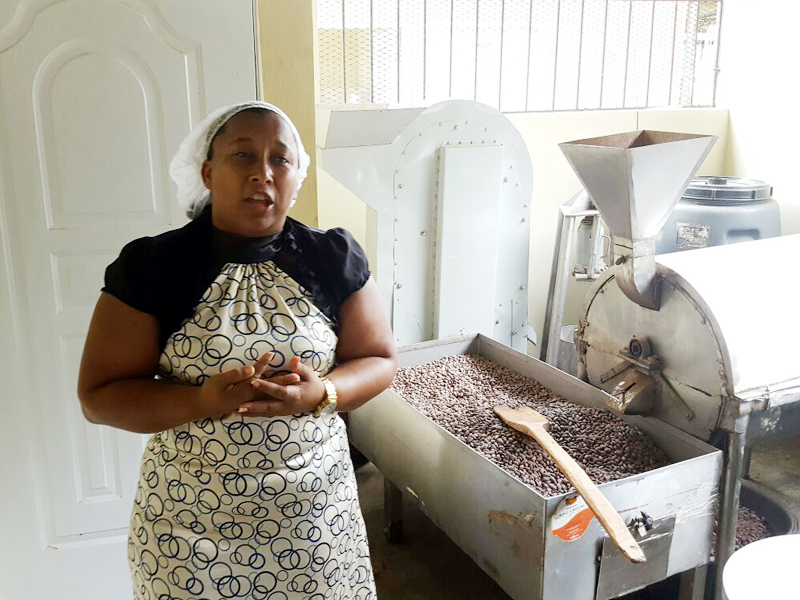A mission, led by the IICA delegations in Canada, Peru and the Dominican Republic, provided an opportunity to share practical and useful recommendations on value added cocoa processing and to validate a robust business model for small scale producers.

Ottawa, 30 August, 2016 (IICA). During a recent visit to the Dominican Republic (DR), representatives from a Peruvian cacao cooperative benefited from the personal interactions and knowledge shared by a women’s chocolate processing cooperative in the Altamira Region of DR: CHOCAL. They demonstrated how to improve earnings by going up the value chain and producing certified cacao products for both local and overseas markets.
With support from the Delegations of the Inter-American Institute for Cooperation on Agriculture (IICA) in Canada, Peru and the Dominican Republic, three representatives from Oro Verde, a cacao cooperative in Peru, participated and were able to learn more about the CHOCAL case.
Some 14 other participants from the Andean and the Caribbean countries were privy to an optimized business model being prepared to guide small cacao cooperatives to derive similar benefits.
Value chain participants such as suppliers of cacao beans, support services, buyers and importers were also on hand to provide practical and useful recommendations to ensure the preparation of a robust business model.
CHOCAL is managed and operated by women. This model has had a significant impact on the community as well as the women and their families. According to one of the members of the cooperative: “we had no idea that we could do work of high quality within our community”.
Their operations were captured in a case study conducted under the project: “Enhancing value-added opportunities of small scale cacao producers in Peru and the Dominican Republic” supported by the Technical Cooperation Fund of IICA and a collaborative effort of the Institute’s delegations in Canada, Dominican Republic and Peru.
The level of motivation and enthusiasm generated was beyond expectations and has prepared the way for catalytic activity by women cacao producers in Peru and other cacao producing countries. This was effectively expressed by an Oro Verde producer: “we want to demonstrate that we are able to work with cocoa and improve our livelihoods”.
The activity took place from 22 to 26 August 2016, at the facilities of the IICA delegation in the Dominican Republic and various cocoa producers in Altamira.
More information: audia.barnett@iica.int – frank.lam@iica.int











